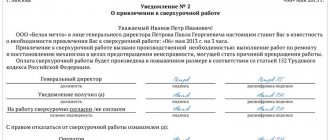Rights of minor children
Children are psychologically and physically immature, but a child's rights are no different from the human rights of an adult. They provide an opportunity for a young citizen to grow into a harmonious personality.
Civil rights of the child
From the first seconds of birth, the baby is considered a citizen of the Russian Federation. From this moment on, the state ensures the following civil rights of the child:
- Every child has the right to a name. At birth, the baby's name is given by the parents. However, upon reaching the age of 14, he can change his first or last name.
- Immediately after birth, a little person has the right to life, as well as to freedom and privacy. This means that no one can harm him, restrict his freedom, or perform medical procedures that are illegal.
- A minor can freely express an opinion, and it must be taken into account, but taking into account age. For example, when determining the place of residence of a minor during a parental divorce, the opinion is taken into account from the age of 10. And after receiving a passport as a citizen of the Russian Federation, from the age of 14, he can independently file lawsuits in court.
- Minor citizens can choose their religion.
- The minor must be provided with care, care and material equipment. If for certain reasons he does not live with the family, then these responsibilities are assigned to guardians or government authorities.
- He can and should also receive education, including additional education.
- A minor must be protected from violent acts by others, including forced drug use.
Political rights
Despite the age, the rights and responsibilities of the child are not only civil, but also political in nature:
- From the age of 8, he can be a member of children’s organizations, and from the age of 14, in youth organizations aimed at leisure, creative, and sports activities.
- The state, in turn, is obliged to support such organizations through advertising, co-financing, improving the material base, rights to preferential conditions, and so on.
Economic rights
The economic rights of the child in Russia include:
- Labor protection: the law establishes the minimum age for a minor citizen at which he or she is required to work. In this case, the terms of payment and work process differ from those of adults. For example, a teenager does not work full time.
- From the age of 14 he can independently manage the funds and gifts he has.
- Minors receive benefits and medical care.
Property rights
Property interests mean the child’s right to material support received from parents or guardians:
- Every minor is provided with housing, shoes and clothing, and food.
- He may own real estate or money received by inheritance. Until adulthood, responsibility for interests falls on legal representatives. After 18 years of age, a teenager can manage his own property and money.
Social rights
The main task of the state and adults is to ensure that teenagers are educated, comprehensively developed and healthy. Therefore, compliance with the following social interests is mandatory:
- Young citizens must receive education. Therefore, upon reaching a certain age, they are assigned to a kindergarten, school, or their legal representatives provide home education.
- Every minor can participate in clubs and sections of additional education.
Rights of the child in the family
Until adulthood, the legal interests of a teenager are protected by parents or guardians. His life depends on adults. But at the same time, the legal norms of a minor citizen must be observed:
- Unimpeded access to information about parents and relatives. This is important when registering guardianship or depriving parental rights.
- Without legal grounds, no one can deprive a minor citizen of communication with parents and relatives.
- Both parents are obliged to raise and develop a young teenager.
Children's rights in school and kindergarten
Legal norms are also observed in educational institutions.
So in kindergarten they should provide:
- Safe stay, privacy and respect. That is, the teacher cannot use physical force or moral suppression against the child.
- At the same time, employees of preschool institutions are obliged to work to develop the creative and athletic abilities of children; classes are conducted aimed at developing speech.
- If necessary, the kindergarten provides medical care.
At school you need:
- Provide training for young children according to general or individual plans.
- Unhindered use of library resources and access to food.
- The school is obliged to comply with sanitary standards, providing a safe educational environment.
- The school implements additional education programs, both on a paid and free basis.
- If necessary, a minor can receive help from a psychologist or teacher.
Rights of disabled children
It is important to comply with legal standards for minors with disabilities. After all, the specific rights of the child must be ensured for them:
- Adults and the state are obliged to give him a full and decent life.
- The state provides additional preferential conditions and guarantees that provide financial support to the legal representatives of special children.
Rights of orphans
Children without parents are also protected by law. Specific rights of the child include:
- They may be taken into care or adopted.
- The minor is provided with a place in social institutions providing care and education.
Child's rights
At the international and national level, there are many special acts on the rights of the child. The main act on the rights of the child at the international level is the Convention on the Rights of the Child (New York, November 20, 1989) - a document on the rights of the child consisting of 54 articles. All rights included in the Convention apply to all children.
- The child must have all the rights specified in this Declaration. These rights must be recognized to all children without exception and without distinction or discrimination on account of race, colour, sex, language, religion, political or other opinion, national or social origin, property, birth or other status relating to the child himself. or his family.
- The child shall be provided by law and other means with special protection and with opportunities and favorable conditions that enable him to develop physically, mentally, morally, spiritually and socially in a healthy and normal manner and in conditions of freedom and dignity. In making laws for this purpose, the best interests of the child must be the primary consideration.
- The child must have the right to a name and citizenship from birth.
- The child must benefit from social security. He must have the right to healthy growth and development; To this end, special care and protection must be provided to both him and his mother, including prenatal and postnatal care. The child must have the right to adequate food, housing, entertainment and medical care.
- A child who is physically, mentally or socially disabled must be provided with special treatment, education and care necessary due to his special condition.
- For the full and harmonious development of his personality, a child needs love and understanding. He should, whenever possible, grow up under the care and responsibility of his parents and in any case in an atmosphere of love and moral and material security; a young child should not, except in exceptional circumstances, be separated from his mother. Society and public authorities must have a duty to provide special care for children without families and for children without sufficient means of subsistence. It is desirable that large families be provided with state or other child support benefits.
- The child has the right to receive education, which should be free and compulsory, at least in the initial stages. He should be given an education which will contribute to his general cultural development and by which he may, on a basis of equality of opportunity, develop his abilities and personal judgment, as well as a sense of moral and social responsibility, and become a useful member of society. The best interests of the child should be the guiding principle for those responsible for his education and learning; this responsibility lies primarily with his parents. The child must be provided with full opportunity for games and entertainment that are aimed at the goals pursued by education; society and public authorities must make efforts to facilitate the implementation of this right.
- The child should, under all circumstances, be among those who first receive protection and help.
- The child must be protected from all forms of neglect, cruelty and exploitation. It must not be subject to trade in any form. A child is not a commodity
You may like => Claim In Adsmas
Protection of children's rights
Until they receive a passport - they are 14 years old, minors cannot independently defend and defend their interests. This responsibility rests with parents and guardians. They, defending the minor, go to court. If necessary, representatives of state authorities - guardianship authorities - are obliged to protect him from his own parents.
Documents on children's rights
The issue of protecting the legal interests of minors was first raised in 1924. Then the Declaration of the Rights of the Child was developed and adopted. On its basis, an International Convention was subsequently created and signed.
Public organizations for the protection of children's rights
The main provisions on the rights of the child are enshrined in the Convention. In order for all legal aspects of child protection prescribed in it to be observed, each country that has signed it monitors the implementation of all points. The main representative and protector of minors at the state level is the Commissioner for the Protection of Children's Rights or Ombudsman. There are also organizations dedicated to protecting mothers raising children alone, as well as teenagers who find themselves in difficult life situations.
Children's rights in Russia: what they are and where they are enshrined
There is no separate document “Code of the Rights of the Child” in Russia. But Chapter 11 of the Family Code of the Russian Federation is dedicated to minors. Articles 54 and 55 provide them with accommodation and upbringing in a family, provision of material resources, contacts with mother, father and other relatives.
- for life, name, parents;
- to freedom (opinions, thoughts, self-expression);
- for medical care, social security, education;
- to a decent standard of living that promotes comprehensive social, mental and physical development;
- to get acquainted with culture, rest and leisure;
- for protection from exploitation (including sexual exploitation), drug propaganda, and armed conflicts;
- to the presumption of innocence.
May 13, 2021 polrostov 57
Share this post
- Related Posts
- Article 145 Part 2 Criminal Code of the Russian Federation 1982 Year Criminal record
- Every Power Presupposes a Minimum of Rights, Every Right Presupposes a Minimum of Power (B P Vysheslavtsev)
- The court made a decision in favor of the administration, I filed an appeal, after the appeal the decision was canceled
- What to do if you quit and pay alimony only from the pension of the Ministry of Internal Affairs
What rights does a child have in the Russian Federation?
- “Convention on the Rights of the Child” (approved by the UN General Assembly on November 20, 1989, entered into force for the USSR on September 15, 1990);
- Constitution of the Russian Federation;
- Family Code of the Russian Federation;
- Federal Law of November 21, 2011 N 323-FZ “On the fundamentals of protecting the health of citizens in the Russian Federation”;
- Federal Law of December 29, 2012 N 273-FZ “On Education in the Russian Federation”;
- Federal Law of July 24, 1998 N 124-FZ “On the Basic Guarantees of the Rights of the Child in the Russian Federation”;
- Federal Law of December 21, 1996 N 159-FZ “On additional guarantees for social support for orphans and children without parental care”;
- Federal Law of November 24, 1995 N 181-FZ “On the social protection of disabled people in the Russian Federation.”
Information must have a favorable moral orientation and contribute to the full physical and mental development of the child. He must be protected from other information that is harmful to the well-being of the child, including at the legislative level.
May 15, 2021 lawyerrp 274
Share this post
- Related Posts
- Can a Woman Take Her Husband's Last Name Later?
- Sample characteristics for a student not under guardianship to the guardianship and trusteeship authorities
- The difference between market valuation and market price justification
- Is it possible to pay child support part-time?








